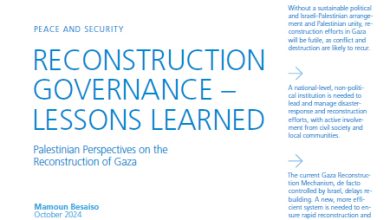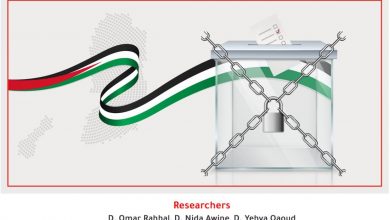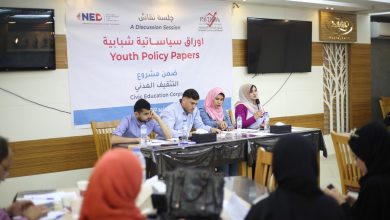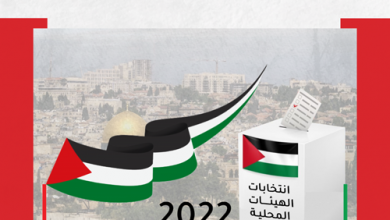International Aid to Palestine, Lessons and Implications

Gaza, 1st of November 2011
Introduction
That aid is given with a political, cultural, social or ideological motive behind it is no secret. The seminar wanted to focus on how to use the aid given to the benefit of the Palestinian people, meaning a more efficient, transparent project funding and aid system.
PalThink organised the seminar to encourage rational and in depth debate amongst civil society actors, international organizations, de-facto authority in the Gaza Strip and international aid organizations themselves and the governments, both donors and receivers to critical examine the current system and see where there are gaps and what can be done to fill them which aim to enhance cooperation not confrontation
The seminar which was held in Gaza in Tuesday 1st of November 2011 was in two sessions, 1st “ Regional Support for the Gaza Strip – Turkey and Qatar’ and 2nd ‘Western Aid to the Palestinians’ and being presented by a specialist in the area. Following the sessions there were Q & A directed to the panels on the issues they have addressed. The seminar is organized within the project “Restoring the cooperation amongst community actors towards a reconciled and civilized society which is implemented in cooperation between Palthink and FDFA of the Swiss government. Needless to say that the opinions on this report does neccesarily represent neither nietehr Palthink nor the donor.
Summary:
The seminar audience was more than 100 and showed a cross section of the Palestinian society. There were represents from the monetary authority, the media, university students – both female and male, and of course NGOs from various field, ranging from women’s rights to developmental ones. This led to a lively debate during the Q & A sessions and showed the large interests held by the Palestinian public on this topic.
The main theme were the conditioned aid and how there is no coordination and cooperation between the INGOs, NGOs and donors together with the Palestinian people’s needs. The theme of Palestinian ownership of the aid was prevalent, the people interest and needs should be the priority and therefore they have right to influence and evaluate the aid funded activities.
After a short welcoming speech by Omar Shaban, founder and director of PalThink for Strategic Studies, the presentation began.
Session 1 Regional Support for the Gaza Strip – Turkey and Qatar
Dr Adnan Abu Amer, Professor of Political Science
The question of Palestine is not a local matter, but has also regional implications. As such the one who can influence the PA will be viewed as a big player and have a say in the peace talks able to interact with the US, Russia and EU. Therefore Turkey and Qatar, while feeling a sense of brotherhood towards the Palestinian people, have political motives for their aid.
Qatar is still new in the area, but is trying to involve itself in the region not only by giving aid to the PA but also to Egypt, Syria and Libya. This is not an accusations but it is important to know the motivation behind the aid, to have a more transparent process which can help implement projects that are useful.
Following the internal split, aid has been predominantly going to the West Bank, to the PA rather than the Hamas Government. This has made the living standards of the West Bank and Gaza Strip different, where the Gaza Strip is in limbo, not dying, yet not living. At the same time the PA is more influenced by the wishes of donor countries as the aid they are receiving is mostly politically conditioned.
Alaa Ghalayini, Director of the NGO Development Center (NDC)
The NGO Development Center was created in 2006 with three objectives
1. To provide quality services to the NGOs, e.g. human resources.
2. To improve their efficiency and influence when implement projects, e.g. strategic planning.
3. And to promote and develop the NGOs, e.g. cross sector cooperation and coordination trough the NGO Portal online.
The Center is unique as it is the only Palestinian financial centre of its kind, and work with both the PA and the Hamas Government in the Gaza Strip.
As to the services and development of the NGOs, the Center has a variety of scholarships and grants; development grants, emergency grants and small scale grants. The range is from 250 000 to 400 000 USD depending on the type of grant. Since the establishment of the Center 20 million USD have so far been granted to a variety of sectors; medical, agricultural, educational etc. The Center does not grant relief project unless it is in the format of labor intensive, using local labors to increase the employment level. Such relief projects, especially after the 2007 siege is beneficial to the community, building schools and libraries and hiring the labor and staff locally.
The grant process is in three steps, where the Center sends out their own experts to verify and examine the capabilities and sustainability of the project proposal. Furthermore the list of approved grant is published online for the public to see.
Ayman Ayesh, the Department of Institutions and Societies, Ministry of Interior (Government of Gaza)
The international aid available to the Government of Gaza was reduced after 2007, with many INGOs closing down their offices. Now many have re-opened again, and there are many new NGOs. The policy is to make sure that the registered INGOs and NGOs are working according to the law. There were many who failed, and so broke the law, to deliver and administrative and financial reports. Another point is that the Department tried to get a more coordinated NGO – government relationship to work towards development of the Gaza Strip.
The Government faced oppositions from INGOs who felt that they should be exempted; this was especially relevant when US funded INGOs wanted to be above the law, as they had been under the previous government of Gaza. The NGOs and Arabic funded INGOs had no problem with the registration request and understood that the Government wanted not to control them, but to create better coordination to better serve the Palestinian people. The aim is to make sure the political and social considerations of the Palestinian people are what are most important. By 2009, registration is now complete and a list of the NGO and INGOS working the in the Gaza Strip, and their financial reports, are available to the public.
Session 2 Western Aid to the Palestinians, Data and Results
Dr Khaled Shaban, MD, Researcher at the Palestinian Planning Center.
There are huge amount of money being donated as aid money to the PA. There are two types, as directly given by states to the PA or by donor’s states to NGOs. For example the EU distributing aid money to NGOs, here the NGOs can lose power, being limited in the programs by preconditions set by states. The US cutting funds to UNESCO is an example of political logic dictating aid and thus projects.
One of the objectives of the Western aid to change the culture of the Palestinian society, by funding programs or projects that also reflect the cultural values they want to see being promoted. They can tie this to projects and funding given to the judiciary or legislative sectors, the PLC, to promote laws which enable or change cultural values.
The largest donor in the Paris 2007 Conference was the Arabic Union, and the total aid pledged was 2.5 billion USD. Looking at a larger time frame 1993 – 2011 the EU is the largest donor contributor. The problem is that there can be no development under occupations, as what is build is later destroyed, and yet a major problem lies in coordination. With the multiple NGO’s and now with a NGO’s according to political affiliation there is no common agenda, no agreed upon meaning of the word development and thus little coherence in projects implemented. So we are not in a situation where the EU provides the money, but without anyone to receive the money who can present a united front that work for the interest of the Palestinian people.
Mr. John Gatt- Rutter, EU Representative in the Palestinian Territories
John Gatt- Rutter confirmed that per capita the EU is the largest aid donor to the Palestinian people, 1 billion Euros, and that with the sum there is a responsibility. Since the EU is composed of different countries the aid is always critically revised in member countries. The aid is not meant to the mean in itself, but rather a mean to an end, the end being a viable Palestinian state.
The aid is thus given to lay the foundation, and it is important to always remember that goal. The chronic financial problem of the PA is nothing new, and is understandable with for obvious reasons, and the situation in Gaza in particular is unstable. The EU is against any territorial divide, and wants the West Bank and the Gaza strip to link up, both economically and politically. When it comes to the political decisions the EU is supportive and respects the right to self-determination.
This is an important point that Mr. Gatt – Rutter emphasized: the EU and its aid are not tied to the political decisions made by the PA. The decisions to go to the UN will not affect the aid. The aid is part of the EU ‘Neighborhood Policy’, a partnerships with the Palestinian leadership here the priorities are established jointly.
Some details of where EU aid is going into, as this has been asked by the audience earlier
• PEGASE – the developmental cooperation mechanism that contribute to PA salaries and pensions, which 35% goes to Gaza.
• Social allowances on a quarterly bases covering 50 000 household in Gaza.
• PA arrears to private companies, to relieve the debt burden. 40% of those payments go to the private business sector in Gaza.
• Electricity and infrastructure projects are also a priority, to reform and improve those to ease the burden on the Palestinian people.
• UNRWA budget – 75% of the Gaza Strip population are registered as refugees. The EU are the largest contributor to them, and support its activities such as the Summer Camp activities, the special hardship cases since 2006 and emergency job creation programs with 80 million Euros.
• Other activities are water management, technical assistance to create a social security scheme, education trough the Erasmus Mundus to allow to students to travel abroad and fund many other sectors.
The EU welcomes Turkey and Qatar aid as they will be now sharing the financial burden. The EU aid is not sustainable unless there is progress, and now with the European economy not doing well and with member states in financial troubles there is legitimate questions regarding the amount of aid the EU are donating and the results; is peace, and a state any closer?
The EU are not here to do the work the PA or Israel, we can only support money wise. Te problem is not financial, it is political, and we are interested in solving this conflict. But justice and peace will only be provided by a political solution.
Mohsem Abu Ramadan, Head of Administrative Network of NGOs
Abu Ramadan returned to theme of tied aid, and wanted to stress that such aid is unstable since it is linked to political conditions that cannot always be met. Such funding is also not considering the needs and priorities of the receiving country and in the case of Gaza have helped contribute to the lack of comprehensive development plan.
Since 2000 the aid to the PA and the Palestinian society has doubled in size. The poor management of aid and no link to the political realties on the ground, such as for example the occupation, poverty, unemployment PA foreign debt are rising, with no sign of stability of development.
Recommendations
The audience was very interested in more data, statistics and figures of aid and which sectors are receiving it. They were therefore interested public access towards financial and administrative reports of both INGOs, NGOs and the government financed projects this is to increase transparency and so prevent corruption or misuse of aid.
1. To further support and promote the NGO Portal among the relevant actors will be beneficial, offering more coordination and avoid duplication of projects.
2. To establish an open archive of aid given to the PA and NGOS will also help to create transparency and efficient use of aid.
3. Developeing strategies (financial management, human resources, and business manamget) to help NGOs be self reliant are important. It will create an independent civil society and make it a stronger force to protect the interest of the people.







